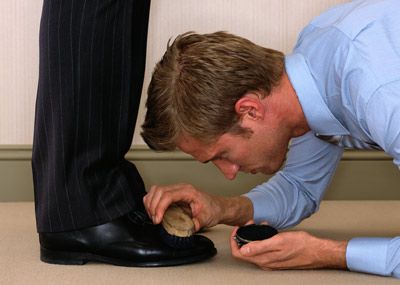Working adults spend more waking hours in the workplace than anywhere else — can you blame them for wanting to inject a little fun into their workdays? Far from hurting productivity or detracting from your image, having fun at work can actually boost both your mood and the company's bottom line.
A 2008 study conducted at the University of Florida found that workers who enjoy themselves accomplish more and are also more likely to reach out to help coworkers [source: Keen]. Workplace happiness also boosts creativity, which can increase innovation and productivity. What does it take to create this kind of morale? Surprisingly, it's the little things that make work fun: office parties, jokes between coworkers, small personal freedoms like a relaxed dress code. Given these seemingly simple incentives, employees find themselves more engaged in the company, which drives them to dig deeper and work harder. These things help companies thrive in good times and recover more quickly from downturns.
Advertisement
Want to help your office lighten up? Direct everyone to a 2014 study from the University of Warwick, which found that happy employees are about 12 percent more productive than unhappy ones [source: Oswald et al]. You could also point them to Fortune's list of the "100 Best Companies to Work For." In 2013, the companies on this list saw revenues increase by an average of 22.2 percent — not too shabby [source: Biro]. It's not just money that makes employees happy either; job satisfaction also has a distinct fun factor, which comes from encouraging people to bring their personalities and interests into the office and actually being themselves instead of corporate clones.
The financial incentives for businesses to encourage a fun work environment are particularly striking when you compare turnover rates between employee-friendly companies and ones that focus less on employee wellbeing. IT companies on Fortune's list of the "100 Best Companies to Work For" have a turnover rate of 5.9 percent, compared to 14.4 percent industry-wide [source: Waggoner]. A reduced turnover rate not only translates to lower hiring and training costs, but also results in a more experienced, productive staff that is better equipped to meet the goals of the company.
Keep in mind that when it comes to having fun in the workplace, your mileage may vary. Only you can assess your company's corporate culture and determine what kind of behaviors will fly, and which will get you called into the boss's office. If you find yourself in a management role, consider that fostering a fun work environment might have just as much of an impact on productivity than more expensive fixes, like higher pay rates and other traditional benefits and perks.
Advertisement



